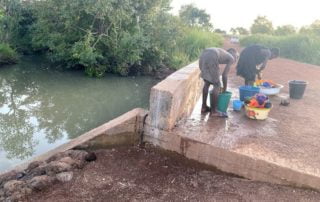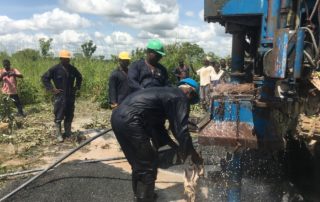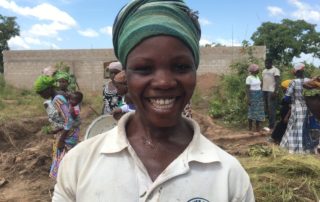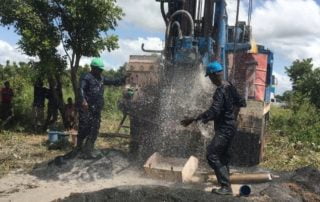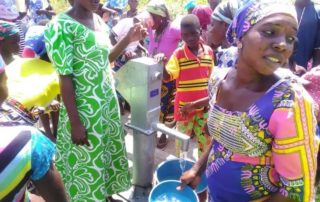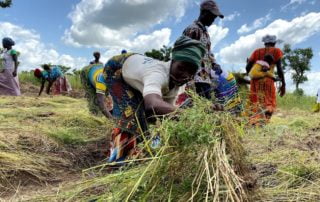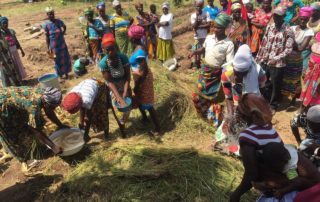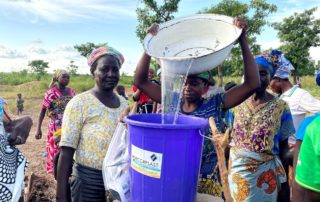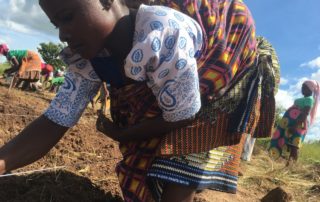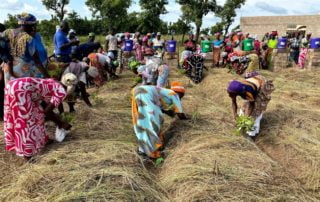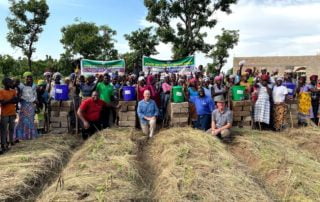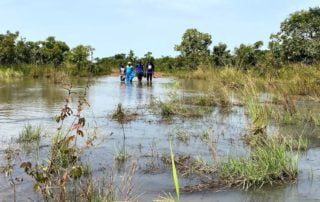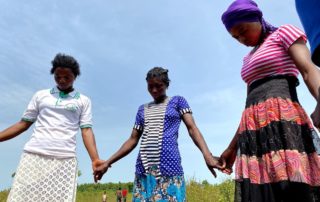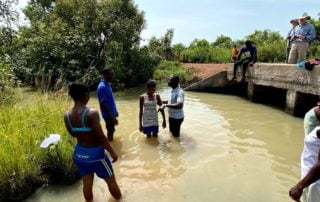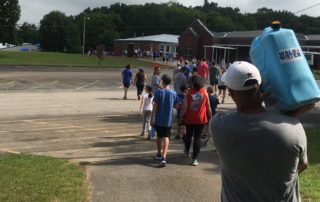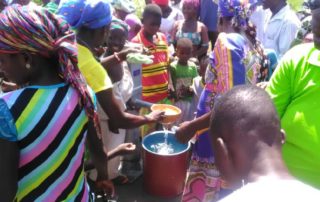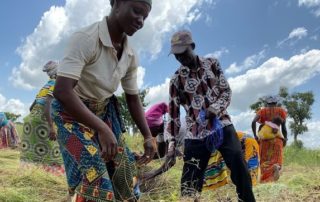Meeting Elizabeth
Elizabeth is 20 years old and has two children. She is a subsistence farmer in this rural community located deep in the interior of Northern Ghana – and a member of the Nyankpani church of Christ.
Often, she and her children travel long distances to collect contaminated water that causes her and her family to become sick. In the Open Guinea Savannah of eastern, northern Ghana, women, and children trek up to six miles a day—in the dry season—through oftentimes dangerous terrain to gather water that is contaminated with parasites causing severe sickness.
By having clean water close to her village, the danger risks are much lower, and she has water to help irrigate the community garden located on the church property.
Working Together To Empower Local Communities
With the collaboration of HHI and GWAM, in cooperation with the local people of Ghana, Elizabeth’s family circumstances have changed. That is, she now has access to clean water and the knowledge of sustainable farming practices that empower her to help her family and community be more successful.
We All Want The Best For Our Children
We had a chance to speak with Elizabeth during the workshop, and she said, “I try to send my children to school so that when they grow up, they are independent in life. I would like my children to be teachers and doctors. When my children go into those professions, and then they come back into this village, they will be role models. Other children will see them and admire them and want to be educated.”
She, along with almost 70 other members – mainly women – of the Nyankpani church, participated in a sustainable agricultural garden workshop. The workshop demonstration garden plot is located on the church property and will be shared by church members and the community.
Understanding The Value Of Sustainable Farming Practices
Elizabeth said she farms okra, pepper, and peanuts. She also wants to farm corn and beans, but she said, “there was not enough money.” However, she said that the most important thing that she learned in the workshop was how to create a compost pile. “Since I now understand the value of composting, I now can afford to plant corn and beans due to the savings of not having to buy commercial fertilizer. This opportunity changes everything for Elizabeth.
Elizabeth went on to say, “the compost is all-natural and is less likely to make me and my family sick due to the chemicals added to commercial fertilizers. Having the clean water near the shared garden is a blessing for us because we can now fetch safe water for drinking, and we can also water our garden to produce more vegetables during the dry season.”
Teaching The Love Of God
Also, a key element of the overall program is having the opportunity to teach the local community about the love of God and His saving grace. It is always a special time when hearts are touched by understanding the gospel message of love, mercy, and grace. There were three young ladies – Regina, Happy , and Hanna – that were added to the kingdom of Christ through their faith and baptism, and the will be attending Nyankpani church of Christ.
In Sub-Saharan Africa nothing is easy. The morning of the baptisms, the local evangelist – Sammy and David – crossed a swollen tributary to the Dakar River to reach the nearby village where the young lades lived. This is another testament to the commitment of the local church to teach the loving message of Christ in these challenging communities.
Mars Hill Bible School HHI Walk4Water
This successful effort could not have been possible without the caring staff and students of Mars Hill Bible School in Florence, AL. On August 24th, Mars Hill Bible School hosted an HHI Walk4Water to raise funds to drill a new water well for the Nyankpani community.
Due to the hard work and sacrifices of the school, they were able to raise $10,200 for clean water. The money was enough for a new water well in the Nyankpani community and rehabilitation of another well that had fallen into disrepair.



